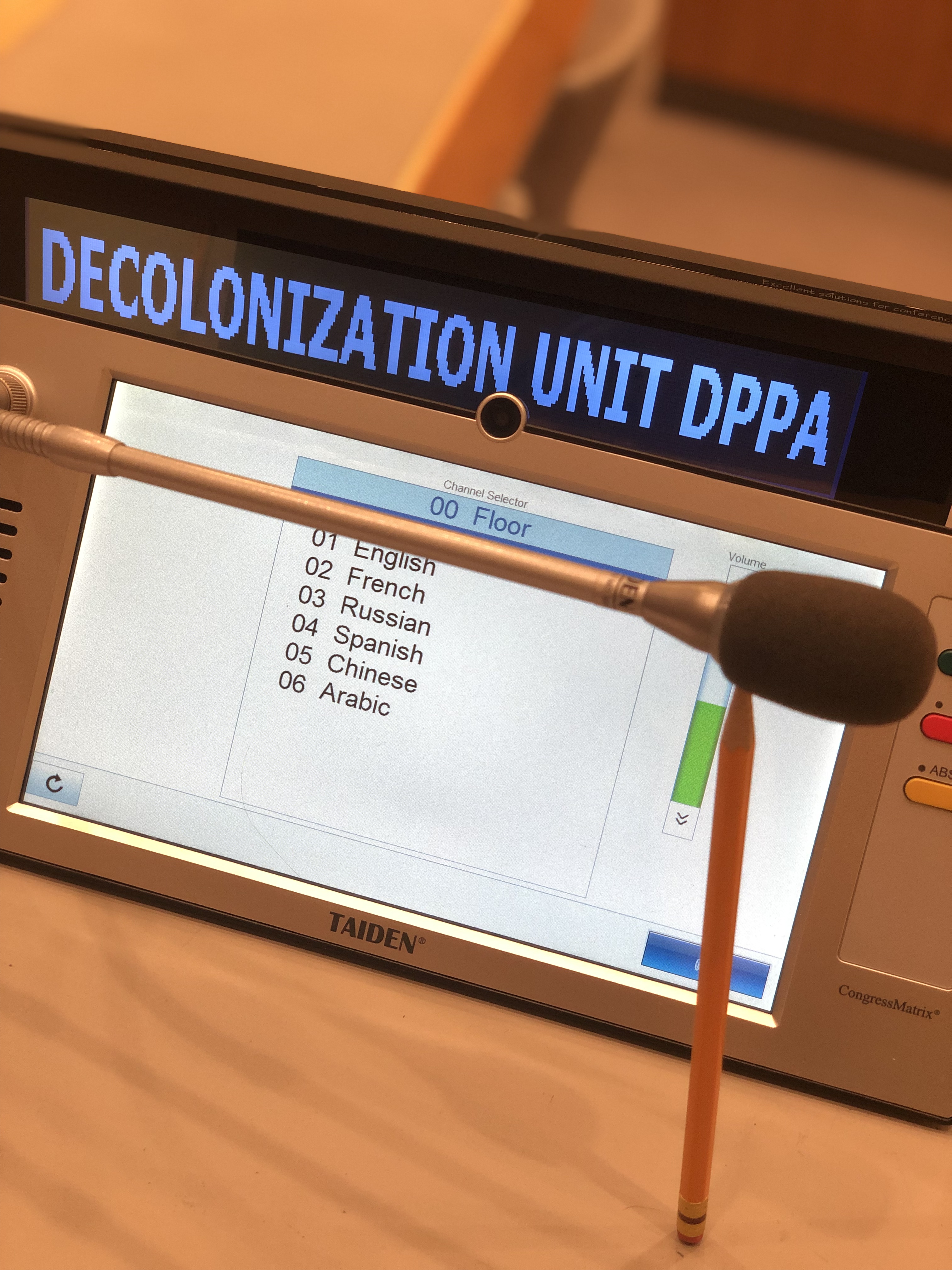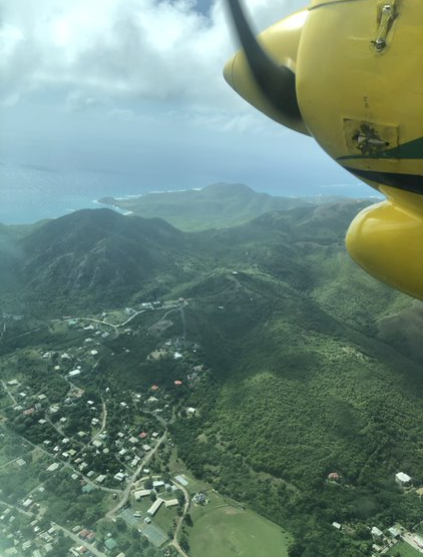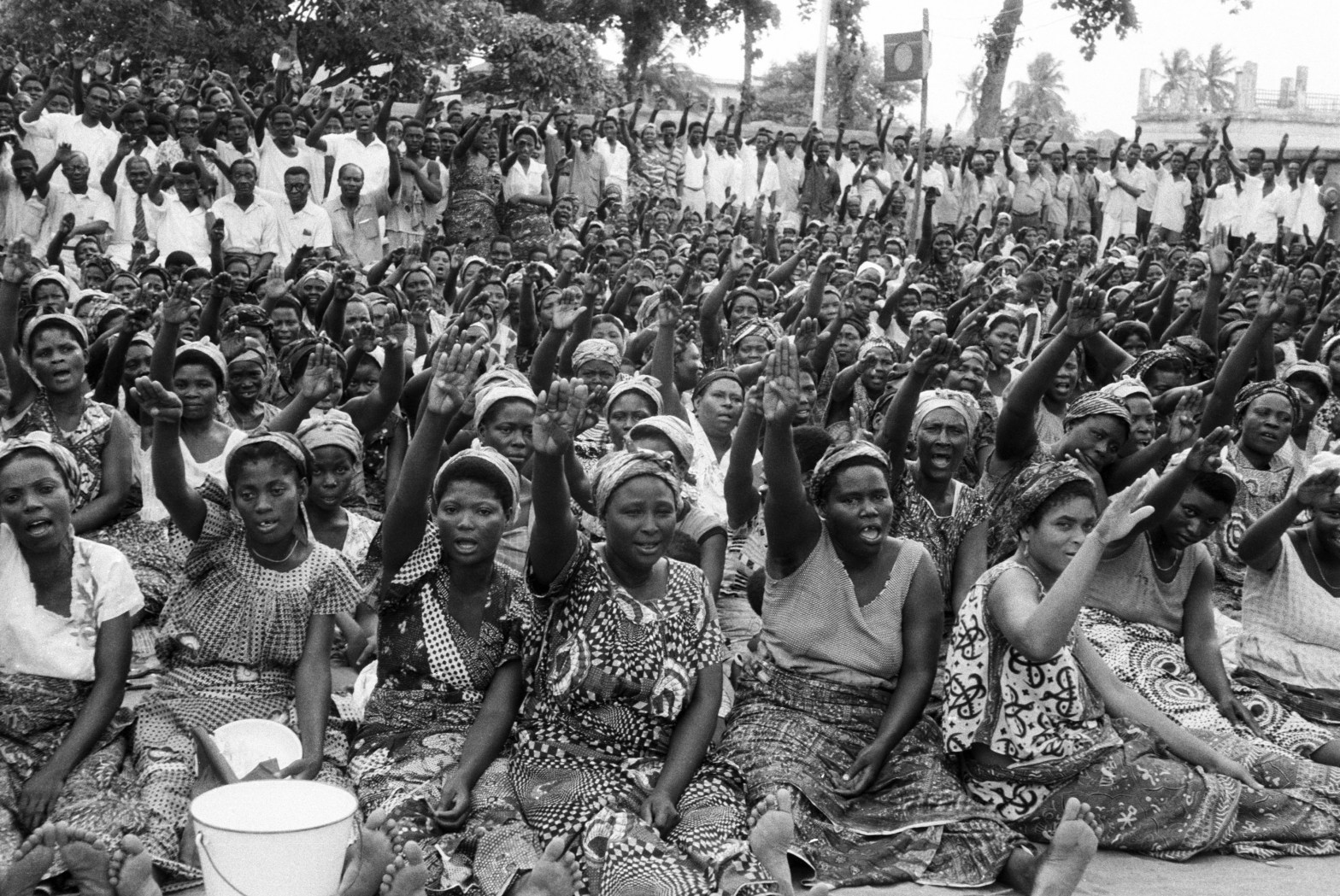In much of the world, talk of colonialism conjures up images of a distant past. But the process of decolonization that marked so much of world history in the middle and latter parts of the 20th century is not yet over. As we approach the end of the Third (yes, third!) International Decade for the Eradication of Colonialism, let’s take a closer look at what the United Nations is doing to achieve its promise of decolonization.
What is “decolonization” and why are we still talking about it?
The birth of the United Nations 75 years ago was part of a fundamental transformation of the way the world was governed. In 1945, some 750 million people, nearly a third of the world’s population at the time, lived in territories that were dependent on colonial powers. Since 1945, more than 80 former colonies have gained their independence. Decolonization, which changed the face of the planet, represents one of the UN’s first great successes.
But the process of decolonization is not finished. There are still 17 Non-Self-Governing Territories (NSGTs), with a total population of 1.6 million people. The last NSGT to change its status was Timor-Leste, which in 2002 became the first new sovereign state of the 21st century, following three years of UN transitional administration.

The 17 NSGTs are American Samoa, Anguilla, Bermuda, British Virgin Islands, Cayman Islands, Falkland Islands (Malvinas)*, French Polynesia, Gibraltar, Guam, Montserrat, New Caledonia, Pitcairn, Saint Helena, Tokelau, Turks and Caicos Islands, United States Virgin Islands and Western Sahara. The Administering Powers are France, New Zealand, the United Kingdom and the United States. They are bound by the UN Charter to promote the well-being of the Territories, including through ensuring their social, economic, political and educational progress; and assist the Territories in the progressive development of their political institutions, taking into account the particular circumstances and varying stages of advancement of each Territory.
* A dispute exists between the Governments of Argentina and the United Kingdom of Great Britain and Northern Ireland concerning sovereignty over the Falkland Islands (Malvinas).
What is the UN doing on decolonization?
The United Nations monitors progress towards self-determination in the Territories, as mandated by the Declaration on the Granting of Independence to Colonial Countries and Peoples, adopted by the General Assembly in 1960. The Declaration affirmed the right of all people to self-determination and proclaimed that colonialism should be brought to an end.


The General Assembly also established in 1961 the Special Committee on the Situation with regard to the Implementation of the Declaration on the Granting of Independence of Colonial Countries and Peoples, also known as the C-24. The Committee, comprised of 29 countries, reviews how the Declaration is being implemented. It holds one annual session, an annual regional seminar (which is organized alternatively between the Caribbean and the Pacific regions), reports to the Special Political and Decolonization Committee (Fourth Committee) and takes action on approximately twenty resolutions under five General Assembly agenda items. The C-24 also participates in the annual session of the Economic and Social Council (ECOSOC). Within the UN Secretariat, DPPA’s Decolonization Unit supports the work of the Committee. The Unit provides guidance on decolonization matters to DPPA and the rest of the UN system, and supports the C-24’s annual sessions; prepares and conducts the C-24’s annual regional seminars, and prepares visiting missions to the NSGTs, among other activities. The Unit also follows developments in the Territories, conducts research and prepares working papers on the Territories.
There have been three “International Decades for the Eradication of Colonialism” so far. What are they, why were they created, and will there be a fourth decade?
The “International Decade for the Eradication of Colonialism” was first declared by the General Assembly in 1988 for the period from 1990 to 20001, marking the 30th anniversary of the Declaration on the Granting of Independence to Colonial Countries and Peoples. In 1991, the General Assembly adopted its plan of action aimed at ushering in the 21st century, a world free from colonialism. The Assembly declared the Second Decade (2001-2010) in 20003, calling upon Member States to redouble their efforts to implement the plan of action for the first international decade. The Third Decade (2011-2020) is about to end. A report from the Secretary-General should be issued soon to report on efforts over the last ten years aimed at ending colonialism. The decision on a Fourth Decade remains with the General Assembly.
What are “visiting missions” to Territories and what is their impact?

Since 1965, the Special Committee on the Situation with regard to the implementation of the Declaration on the Granting of Independence of Colonial Countries and Peoples (also known as C-24) has dispatched a total of 40 visiting and special missions to 23 NSGTs. The Committee’s visiting missions aim to ascertain the situation in the Territories, in accordance with the relevant United Nations resolutions on specific Territories. In the current decade, the C-24 has dispatched visiting missions to New Caledonia twice (2014-2018) and to Montserrat (2019) once.
In 2019, the General Assembly reaffirmed visiting missions as an effective means of ascertaining the situation in the Territories and requested the C-24 to undertake at least one visiting mission a year.
What have been the main challenges for Territories in times of COVID-19?
As in the rest of the world, the COVID-19 pandemic has cause major economic and financial difficulties in the NSGTs, most of which are small islands and depend heavily on tourism. Often located in remote islands, some of the Territories face limited capacity in terms of medical personnel and equipment and experience delays in having supplies reach them. The pandemic also slowed down progress of achieving the Sustainable Development Goals. Some Territories have lately started to reopen their borders to tourism facing the double challenge of needing to boost their economy and hence open up tourism again and protecting the health and safety of all. To face that extraordinary challenge, targeted measures have been put in place including quarantine, close monitoring and tracking systems.
Title pictures: Crowd singing at a rally of the Juvento party on election eve in Lomé. The people of the UN Trust Territory of Togoland under French Administration elected a new Chamber of Deputies to replace the former Legislative Assembly in April 1958. UN Photo/TW
